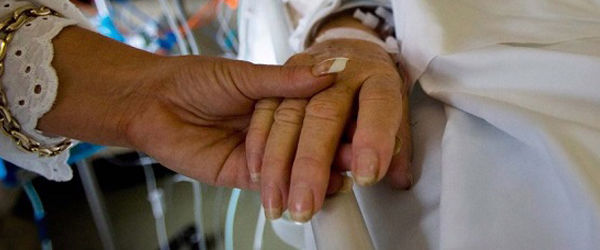When I was a campus minister (a long time ago!), I often struggled with the fact that I was being paid to perform Christian ministry. I wasn’t paid much, of course — in many ways I was more like a subsidized volunteer than a professional pastoral minister. But still, at times I was uncomfortable in the position. I loved what I was doing, but I wondered if I would do it for free. And when I was reaching out to students, inviting them to events, building relationships and sharing our faith, I was, like most people, keen to succeed. I wanted to be good at what I was doing, and in general felt that this would be reflected by how many people attended our programs.
In today’s Gospel reading, Jesus identifies himself as the Good Shepherd — a familiar metaphor. He compares himself to hired hands, those who only take care of sheep for the money. When the wolves come to attack the flock, the hired hand flees to protect himself. As the Good Shepherd, Jesus says, “I lay down my life for the sheep.”
This is a fitting passage for Easter, when we celebrate this very act — that Jesus laid down his life for all of us, enduring unthinkable suffering and death. He did not take the easy way out. He did not flee when surrounded by wolves more vicious than anything most of us will ever face. He continued to trust in God’s love, and to lead us to the source of all life.
So a good test of our motivation as ministers is whether we stand by our communities through trials and suffering. Those who do so, Jesus suggests, are clearly not doing so for the compensation, but for the love of the people they’ve been called to serve. They are doing it, we hope, because it fills their lives with joy and propels their own spiritual growth, not because it’s a job.
I’m not saying that ministers don’t deserve the pay and benefits they receive; they certainly do, and probably could earn much more in some kind of secular work. As for me, I had to guard against ministry becoming more of a job than a calling. One of the reasons I changed careers was because there came a point when I felt I was on the wrong side of that equation.
Looking back on my own experience, I suppose I did endure some difficulties, sticking with our little group when it would have been easy to leave. Conflicts are inevitable when humans try and organize anything, and we had our share. Resolving conflicts, as you might imagine, was often where we experienced God most directly — getting beyond the barriers we put, up to the point where we are honest and vulnerable with one another, and find that we are accepted even with our many flaws.
Easter tells us in no uncertain terms that God accepts us, even with our many flaws. God not only accepts us passively, but loves us actively, like a shepherd protecting his sheep with his life.
Bill Peatman writes from Napa. He may be reached at [email protected].

